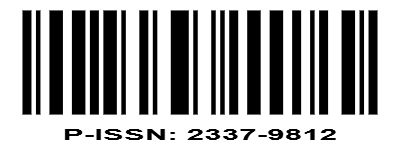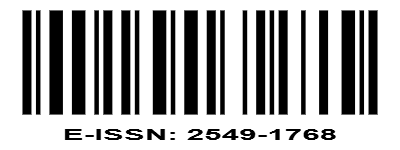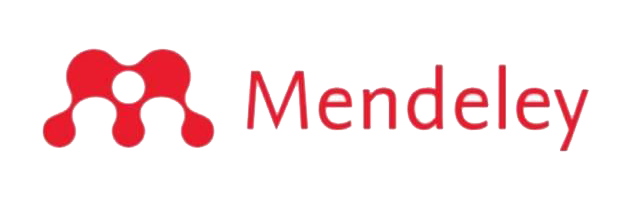KEMUNCULAN LITERASI SAINS PADA MODUL PRAKTIKUM BERBASIS KONTEN, PROSES DAN KONTEK DI SMP NEGERI 1 KOTA LANGSA
DOI:
https://doi.org/10.22373/biotik.v7i2.5657Keywords:
Content, Process, Context and Practicum ModuleAbstract
In the 21st century the importance of scientific literacy learning is a necessity for individuals who face the challenges of the development of rapid scientific progress. Since that, science literacy learning is a learning concept based on content, processes and contexts. The basis of this research is about practicum modules that apply the concept of scientific literacy. The purpose of this study is to find out the indicators of the scientific literacy in the practicum module in Junior High School 1 in Langsa City. The method in this study is descriptive quantitative. The results obtained in this study are: (1) the content aspect of the scientific literacy in practicum module is 39%, (2) the process aspect of the scientific literacy is 52% which stated that the scientific literacy sometimes appears in the practicum module; (3) the context aspect is 40% which stated that the scientific literacy sometimes appears in the practicum module. The result is that practicum module can be stated sufficiently related to scientific literacy.
Downloads
References
Toharuddin, Uus. 2011. Membangun Literasi Sains Peserta Didik. Bandung: Humaniora.
Phearson, P.T.; Pollack, G.R.; and Sable, J.E. 2008. Increasing scientific literacy in undergraduate education: Acase study from “frontiers of science” at Columbia University.
Budiarto., W. dan Oka, A., A. 2014. Pengembangan Petunjuk Praktikum Biologi Berbasis Pendekatan Ilmiah (Scientific Approach) Untuk Siswa Kelas XI Semester Genap Tahun 2013/2014, Jurnal Pendidikan Biologi, 5, (2),123-130.
Farakhiyati. 2009. Pengembangan Buku Petunjuk Kimia Untuk SMP/MTS Kelas VII Berdasarkan Kurikulum Tingkat Satuan Pendidikan (KTSP). Skripsi. Yogyakarta. Program Studi Pendidikan Kimia Fakultas Sains dan Teknologi. Universitas Islam Negeri Sunan Kalijaga.
Suparno. 2001. Teori Perkembang-an Kognitif Jean Piaget. Yogyakarta: Kanisius.
OECD. 2013. Survey International Program for International Student Assessment (PISA). (Online) (http: // www.oecd.org/pisa), diakses 15 Juni 2019.
Hendri,S., dkk. 2017. Pembelajaran Inkuiri Berbasis Virtual Laboratory Untuk Meningkatkan Kemampuan Literasi Sains Mahasiswa Calon Guru Pendidikan Fisika Universitas Samudra. Jurnal IPA dan Pembelajaran IPA. JIPI. 1(2). 143-148.
Maturradiyah, N. & Rusilowati, A. 2015. Analisis Buku Ajar Fisika SMA Kelas XII Di Kabupaten Pati Berdasarkan Muatan Literasi Sains. Unnes Physics Education Journal. 4(1): 16-20.
Yuyu, Y. 2017. Literasi Sains Dalam Pembelajaran IPA. Jurnal Cakrawala Pendas. 3 (2): 21-28.
Mufida. N dan Teguh. J. 2018. Upaya Peningkatan Literasi Sains Siswa Melalui Pembelajaran Berbasis Keunggulan Lokal. BIOSFER Jurnal Tadris Pendidikan Biologi. 9 (1). 24-35.
Rakhmawan, A. 2015. Perancangan Pembelajaran Literasi Sains Berbasis Inkuiri pada Kegiatan Laboratorium. Jurnal Penelitian dan Pembelajaran IPA. 1 (1): 143-152.
Anggun, W., dkk. 2018. Kemampuan Awal Literasi Sains Peserta Didik Kelas V SDN Sidorejo I Tuban Pada Materi Daur Air. JTIEE. 2(1). 58-64.
Downloads
Published
Issue
Section
License
Authors who publish with BIOTIK: Jurnal Ilmiah Biologi Teknologi dan Kependidikan agree to the following terms:
- Authors retain copyright and grant the journal right of first publication with the work simultaneously licensed under a Creative Commons Attribution License that allows others to share the work with an acknowledgement of the work's authorship and initial publication in this journal.
- Authors are able to enter into separate, additional contractual arrangements for the non-exclusive distribution of the journal's published version of the work (e.g., post it to an institutional repository or publish it in a book), with an acknowledgement of its initial publication in this journal.
- Authors are permitted and encouraged to post their work online (e.g., in institutional repositories or on their website) prior to and during the submission process, as it can lead to productive exchanges, as well as earlier and greater citation of published work.











